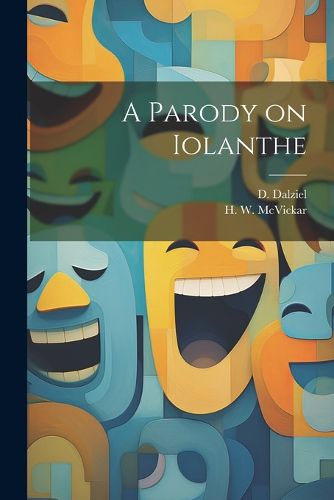Readings Newsletter
Become a Readings Member to make your shopping experience even easier.
Sign in or sign up for free!
You’re not far away from qualifying for FREE standard shipping within Australia
You’ve qualified for FREE standard shipping within Australia
The cart is loading…






D. (Davison) Dalziel and H. W. (Harry Whitney) McVickar's 'A Parody on Iolanthe' is a hilarious and irreverent send-up of the Gilbert and Sullivan classic. Originally published in 1882, this book is a must-read for fans of musical theater and lovers of parody and satire. Dalziel and McVickar's clever lyrics and witty insights into the original work make this book a delight to read for anyone who loves to laugh.
This work has been selected by scholars as being culturally important, and is part of the knowledge base of civilization as we know it.
This work is in the "public domain in the United States of America, and possibly other nations. Within the United States, you may freely copy and distribute this work, as no entity (individual or corporate) has a copyright on the body of the work.
Scholars believe, and we concur, that this work is important enough to be preserved, reproduced, and made generally available to the public. We appreciate your support of the preservation process, and thank you for being an important part of keeping this knowledge alive and relevant.
$9.00 standard shipping within Australia
FREE standard shipping within Australia for orders over $100.00
Express & International shipping calculated at checkout
D. (Davison) Dalziel and H. W. (Harry Whitney) McVickar's 'A Parody on Iolanthe' is a hilarious and irreverent send-up of the Gilbert and Sullivan classic. Originally published in 1882, this book is a must-read for fans of musical theater and lovers of parody and satire. Dalziel and McVickar's clever lyrics and witty insights into the original work make this book a delight to read for anyone who loves to laugh.
This work has been selected by scholars as being culturally important, and is part of the knowledge base of civilization as we know it.
This work is in the "public domain in the United States of America, and possibly other nations. Within the United States, you may freely copy and distribute this work, as no entity (individual or corporate) has a copyright on the body of the work.
Scholars believe, and we concur, that this work is important enough to be preserved, reproduced, and made generally available to the public. We appreciate your support of the preservation process, and thank you for being an important part of keeping this knowledge alive and relevant.